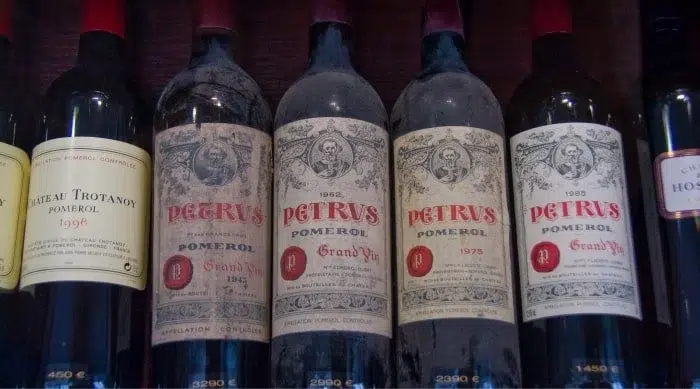Investing in Rare and Exotic Wines: A High-Potential Niche Asset

Investing in rare and exotic wines is gaining traction as a niche asset class with high potential. This trend dates back centuries when fine wines were considered symbols of wealth and status. Today, collectors and investors are tapping into the lucrative world of wine investment.
The market has shown impressive growth, driven by limited availability and increasing global demand. Investors are drawn to the unique characteristics of each bottle, making them not just investments but also pieces of art. With proper knowledge and strategy, you can navigate this exciting field. Understanding the market dynamics will help you make informed decisions and maximize returns.
Key Takeaways
- Investing in rare and exotic wines can be a rewarding niche asset class, offering high potential returns for those willing to learn and engage with the market.
- Start by thoroughly understanding the wine investment landscape, including market trends, notable regions, and the quality of wines that appreciate in value.
- Develop key strategies for wine investing, such as focusing on established vineyards, diversifying your collection, and keeping track of auction results and price trends.
- Be aware of the risks involved in wine investing, including market volatility, storage conditions, and the importance of provenance to ensure authenticity.
- Consider joining wine investment groups or forums to share insights and gain knowledge from experienced investors in the field.
- Regularly review your wine portfolio to make informed decisions about buying or selling, ensuring you stay aligned with market changes.
Understanding the Wine Investment Landscape
Overview of Rare and Exotic Wines
Rare and exotic wines are those that are limited in production. They often come from specific regions, unique grape varieties, or renowned vineyards. These wines have distinct characteristics, such as flavor profiles and aging potential.
Investors find these wines appealing due to their scarcity and exclusivity. The allure lies in owning something unique that few others can access. The global market for rare and exotic wines has grown significantly. Countries like France, Italy, and Spain dominate this sector. However, emerging markets also show interest in these niche assets.
Factors Influencing Wine Value
Vintage plays a crucial role in determining a wine’s value. Older vintages often fetch higher prices due to their rarity. The reputation of the producer also matters. Well-known producers usually see their wines appreciate more over time.
Aging potential is another critical factor. Wines that improve with age tend to attract higher investment interest. Scarcity also drives up value. Limited releases create demand among collectors.
Wine critics’ recommendations can significantly impact prices too. Positive reviews from reputable critics can lead to immediate price increases. Investors often rely on these assessments when making purchasing decisions.
Historical Performance and Trends
The early 1970s marked a significant price surge in the wine market. Prices skyrocketed as more investors entered the field. This boom attracted attention from various sectors, including finance.
However, a sharp decline occurred in 1974. Economic issues led to decreased consumer spending on luxury items like wine. This downturn highlighted the vulnerability of wine investments to economic shifts.
Fluctuations in wine values often correlate with broader economic trends. During recessions, luxury items typically see reduced demand. Conversely, in booming economies, luxury goods like rare wines may thrive.
Key Strategies for Wine Investing
Selecting High-Potential Wines
Research is vital in wine investing. Investors should analyze historical price trends to identify wines that appreciate in value. Expert recommendations can guide choices. Look for wines with strong reviews from critics.
Consider important factors like vintage and producer reputation. Older vintages often fetch higher prices. Scarcity also plays a crucial role. Limited production wines tend to be more valuable over time.
Importance of Provenance and Quality
Provenance refers to the history of a wine’s ownership. It significantly affects investment value. A wine with a well-documented provenance often commands a higher price. Buyers want assurance that they are getting authentic products.
Quality assurance is equally essential. High-quality wines have better aging potential and market demand. Proper documentation, including certifications, supports claims of quality. This documentation builds trust among buyers and sellers alike.
Market Trends to Watch
Emerging consumer preferences shape the wine market. Younger generations are showing interest in unique and sustainable wines. Investors should pay attention to these shifts in taste.
Climate change impacts wine production as well. Regions previously known for certain varieties may struggle due to changing weather patterns. Understanding these changes helps investors anticipate future availability.
Technological advancements also influence the wine industry. Innovations in production methods improve quality and consistency. These advancements may create new investment opportunities for savvy investors.
Navigating Risks in Wine Investing
Market Volatility Concerns
Investing in wine carries inherent risks and volatility. The market can be unpredictable. Prices may fluctuate based on trends, economic conditions, or even natural disasters. For example, the 2008 financial crisis led to a significant drop in luxury goods, including fine wines. Investors saw values decrease sharply during that time.
To mitigate these risks, diversification is key. Spreading investments across different wine regions and vintages can reduce exposure to market swings. Consulting with experts helps too. They provide insights into market trends and guide collectors on which wines to invest in. Learning from past market volatility teaches investors the importance of being cautious and informed.

Storage and Preservation Challenges
Proper storage is crucial for any wine investment. Wines must be kept at specific temperatures and humidity levels to maintain quality. Poor storage can lead to spoilage, affecting value significantly. Common challenges include temperature fluctuations and inadequate humidity control.
Investors often face issues like bottles breaking or corks deteriorating. Solutions include using specialized wine refrigerators at home or investing in professional storage facilities. These facilities offer climate-controlled environments designed specifically for wine preservation. Using them ensures that wines remain in optimal condition, protecting your investment.
Diversification Opportunities
Adding wine to an investment portfolio offers unique benefits. Wine can complement traditional assets like stocks and bonds. It provides a tangible asset that may appreciate over time. Wine investments tend to have a low correlation with other asset classes. This means they do not move in the same direction as stocks or real estate.
Investors looking for stability may find wine appealing. While markets can be volatile, fine wines often retain their value better than many other investments during downturns. Many collectors view wine as a long-term investment strategy that diversifies risk.
Final Remarks
Investing in rare and exotic wines offers a unique opportunity for growth. You’ve learned about the landscape, strategies, and risks involved. This niche asset class can enhance your portfolio while providing enjoyment. With careful selection and knowledge, you can navigate the complexities of wine investing effectively.
Now is the time to take action. Start exploring reputable sources, join wine investment communities, and consider adding fine wines to your investment strategy. Don’t let this chance slip away. Embrace the potential of wine as an asset and watch your investments flourish.
Frequently Asked Questions
What are the benefits of investing in rare and exotic wines?
Investing in rare wines can yield high returns, diversify your portfolio, and offer tangible assets. Fine wines often appreciate in value over time, especially limited editions and sought-after vintages.
How do I start investing in wine?
Begin by researching reputable wine merchants or auction houses. Consider joining a wine investment platform to access expert advice and curated selections. Start small and gradually build your collection based on market trends.
What should I look for when selecting wines to invest in?
Focus on provenance, rarity, and historical performance. Look for wines from renowned vineyards, limited releases, and those with high ratings from critics. These factors significantly influence future value.
Are there risks associated with wine investing?
Yes, risks include market volatility, storage issues, and potential fraud. Wine values can fluctuate based on demand and economic conditions. Proper research and professional guidance can mitigate these risks.
How is wine valued in the investment market?
Wine is valued based on factors like brand reputation, vintage quality, rarity, and market demand. Expert appraisals and auction results also play a crucial role in determining a wine’s worth.
Do I need special storage for my wine investments?
Yes, proper storage is essential. Wines should be kept in a climate-controlled environment with stable temperature and humidity levels to prevent spoilage and maintain value.
Can I sell my wine easily when I want to cash out?
Selling wine can be straightforward if you have a desirable collection. Utilize auction houses or online platforms specializing in wine sales to reach potential buyers effectively.
 Send Buck a voice message!
Send Buck a voice message!




